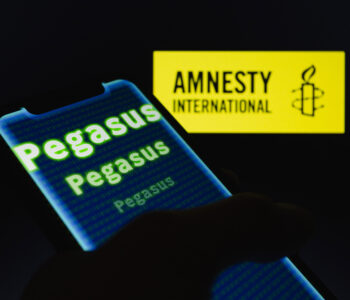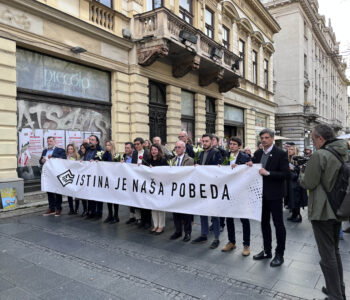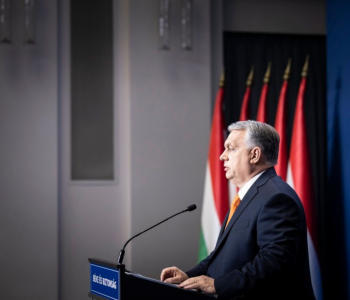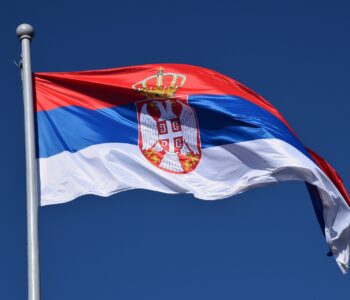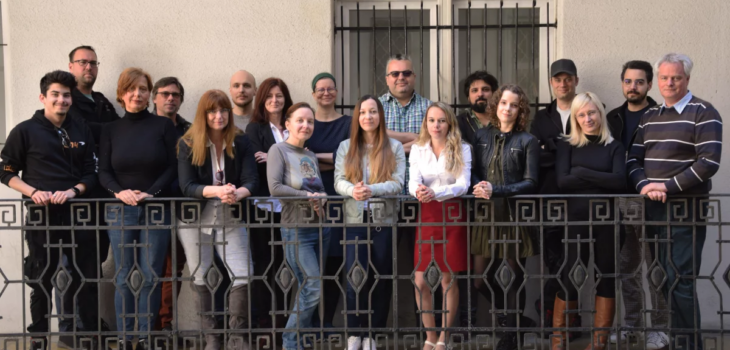
Hungary: Investigative media Átlátszó targeted in latest smear campaign
IPI analysis: Few remaining independent media face increasing hostility over funding sources.
In January 2023, Hungarian investigative media outlet Átlátszó and its editor-in-chief, Tamás Bodoky, became the target of the latest smear campaign in pro-government news outlets aimed at discrediting what remains of the country’s independent media.
In the latest escalation of this pressure, Átlátszó and its journalists faced accusations in pro-government media of “betraying” the nation, attacking Hungarian minorities in neighbouring countries, working for foreign interests and being a national security risk, due to their collaboration in a cross-border investigative project.
The unsubstantiated attacks were made in a series of articles published over consecutive weeks in media owned by allies of the Fidesz government, including the Magyar Nemzet daily, which is part of the pro-government KESMA conglomerate.
These texts about Átlátszó’s non-profit funding model included allegations that Átlátszó was receiving “Judas money” and being a “criminal association” involved in treason and anti-national activities. In a second defamatory article in Magyar Nemzet, Bodoky was directly referred to as a liar and a “national traitor”.
In a common pattern, these initial media smears were echoed by a pro-government foundation and then amplified in what appear to be a coordinated manner by the national news agency MTI, public broadcaster Magyar Televízió and dozens of regional media outlets which are part of KESMA, spreading them to a wider audience.
“It reminds us of the methods of Putin’s Russia and hints at a coordinated campaign, when first the government newspaper attacks us, mentioning a foreign agency and national treason, and then the government’s favourite pseudo-civilian organization urges intelligence intervention”, Bodoky said in response to the attacks.
Átlátszó and Bodoky were targeted over the media outlet’s role in a cross-border investigative project called “Hungarian Money” (hungarianmoney.eu), which was conducted in 2020 and led by Átlátszó Erdély, a Hungarian-language investigative outlet based in Romania. Five editorial teams from five European countries, including Átlátszó, investigated how the Orbán government spent at least €670 million in Hungarian minority organizations in neighbouring Romania, Slovakia, Slovenia and Croatia over the past decade, and how it uses this “soft power” to exert influence abroad.
The project received funding from Investigative Journalism for Europe (IJ4EU), which is coordinated by the International Press Institute (IPI). IJ4EU supports cross-border investigations of public interest in the EU. It is financially backed by the European Commission and other donors but operates independently.
🇭🇺 #Hungary: Investigative media outlet @Atlatszo & its editor-in-chief @bodoky were the target of a smear campaign in pro-government media & accused of betraying the nation & being a 'national security risk'. @erdely_atlatszo. @MediaFreedomEU alert🔽https://t.co/I4LOY0BgKo pic.twitter.com/CrU5xofLoR
— IPI - The Global Network for Independent Media (@globalfreemedia) January 23, 2023
Wider pattern of discreditation
While the smear campaign was denounced by Átlátszó’s investigative partners in a joint statement and multiple journalists expressed solidarity with its team, concerns remain that these kinds of articles continue to act as an incitement of hostility and distrust towards Átlátszó and its journalists.
Far from being an isolated incident, in the past year Átlátszó and other of the country’s remaining independent media, including most recently Telex, have continued to face persistent attacks in government-aligned news outlets smearing them for receiving funding from abroad.
In recent months, the new buzzword in this strategy has been “dollar media”, accompanied by accusations that media are in the pocket of U.S or other unspecified foreign interests or of Hungarian-born billionaire businessman and philanthropist George Soros.
This follows a wider pattern in Hungary, outlined in a 2022 IPI report, that media critical of the government are smeared in an intertwined network of pro-government media as organs of misinformation spreading “fake news” in service of political opposition or foreign governments. These attacks often act as a signpost for online abuse and harassment of journalists. However, so far this harassment normally takes the form of insults from trolls rather than serious intimidation or death threats.
Economic asphyxiation of independent media
The focus on the recent ire on foreign funding sources also points to another phenomenon in the Hungarian media ecosystem: that under successive Fidesz governments, critical and independent media outlets have been systematically drained of state advertising funding, forcing some to seek project grants financed from abroad to stay afloat while also retaining their editorial independence.
This economic isolation is part of a wider campaign of media capture undertaken by the Fidesz government over the past decade, which has involved the coordinated exploitation of legal, regulatory and economic power to gain control over public media, concentrate private media in the hands of allies, and distort the market to the detriment of independent journalism.
In this captured media ecosystem, Fidesz has calibrated the market in its favour by rewarding alignment with its narrative while starving critical media of lucrative advertising funding from ministries and other state institutions. This carrot-and-stick approach has seen independent media excluded from advertising and other subsidies altogether, with public money channelled to finance Fidesz’s media empire. Many of these media in turn serve political interests by acting as the attack dogs of the government against its critics at home and abroad.
In the face of this economic climate, grants from foreign donors and the European Union have proven to be a lifeline for what remains of Hungary’s shattered independent media market. Set against the backdrop of the coordinated erosion of media pluralising recent years, is little surprise then that this financial support has been firmly placed in the crosshairs of the Fidesz media machine.
This article was originally published by IPI as part of the Media Freedom Rapid Response (MFRR), a Europe-wide mechanism which tracks, monitors and responds to violations of press and media freedom in EU Member States and Candidate Countries.



